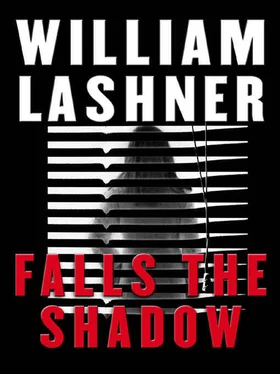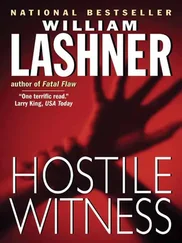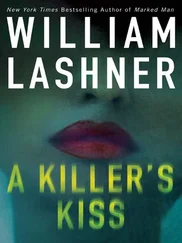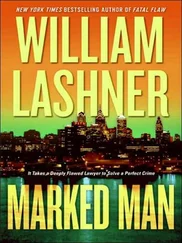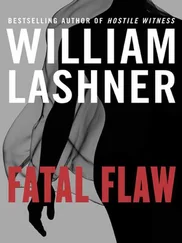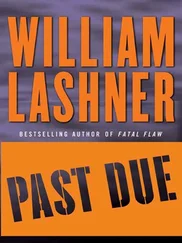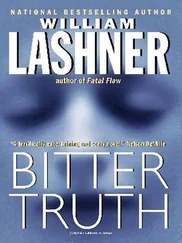“Sure, Father, if that’s what you want.”
“Oh, I do, yes. And best of luck in saving your client in that prison.”
“Thank you, sir,” I said. “We’ll certainly need it.”
“Quite the story,” said Beth as we wended our way out of Fishtown.
“Yes, it was,” I said.
“Three old friends, descending into the maelstrom of crime and drugs and prostitution, their bonds seemingly obliterated. And then, out of the blue, like some superhero with a cape, this Seamus Dent emerges to save his friend before succumbing to the dark side once and for all. But does anything we learned help François?”
“Not yet,” I said.
“Then what’s the point?”
“Most of the facts behind the murder of François Dubé’s wife were fully presented in court. They will become relevant if we get to try the case again, but not when we’re fighting to get a retrial. For this we need something new, something that will pique the judge’s interest. Seamus Dent’s story is exactly that.”
“But you said facts that might have affected credibility aren’t enough to get a new trial.”
“The facts themselves, no. But who else knew those facts? If the police were aware of his background, then the prosecutor might have known about it, too, and her failure to turn over the information to Whit would be a Brady violation.”
“Let’s subpoena her records.”
“They won’t show anything. Whatever anybody knew wouldn’t have been written down. We’re going to have to make the connection ourselves.”
“How do we do that?”
“I don’t know.”
“Victor, we’re not getting anywhere.” There was something in her voice, a line of frustrated desperation.
“Calm down,” I said slowly. “Don’t take this all so personally. It’s just another case. It’s been three hours today already, times two lawyers, times our usual fees, plus expenses, including mileage on the car. We’ve got a retainer to run through, and with our morning’s work we’re making a good start.”
She laughed. “My God, you get more cynical every day.”
“It’s just that over the years I’ve learned that most people in prisons deserve to be there.”
“I don’t believe that of François.”
“And you could tell by looking in his eyes.”
“Yes.”
“See, but you can’t. That’s just the way of it, Beth. He might be innocent, he might be guilty, he might be a saint, he might certainly be a sinner, but whatever he is, you can’t tell by looking in his eyes. The eyes aren’t the window to the soul, they are just sacks of jelly.”
She stayed quiet for a moment, unhappy, I could tell, with her cynical partner.
“You want to stop for lunch?” I said.
“And charge it to the client?”
“Sure, but we’ll consult about the case over Cokes and a burger. I could use a burger.”
“Victor.”
“All right, no lunch, but we still have one more visit.”
“Where?”
“The intersection of Whitaker and Macalester, just next to Juniata Park,” I said.
“What’s there?”
“Someone who might know how Seamus Dent was killed.”
The sergeant sat hunched at his desk, heavy eyebrows raised wearily. He looked as tired as the entire squat brick building, swamped as it was with a steady torrent of crime. There are twenty thousand auto thefts a year in Philadelphia, twenty thousand a year, every year, year upon year. And against all odds, the great majority of these cars are recovered. What condition they are recovered in is another story, but they are recovered still, and the center of this Sisyphean effort is the Philadelphia Police Department Auto Squad.
“Did you file a report with your local district?” said the sergeant when he saw us walk in the door.
“No,” said Beth.
The sergeant breathed in heavily. He seemed too exhausted to get upset at this failure of protocol, too exhausted even to shrug. “You have to file a report with the local district.”
“I don’t want to file a report,” said Beth.
“You don’t got no choice. It’s procedure.”
“But my car wasn’t stolen.”
The sergeant scratched his nose with his thumb. “This is the auto squad, lady,” he said. “We don’t do televisions.”
“My television wasn’t stolen either.”
The sergeant wiggled his eyebrows. They looked like caterpillars sliding along a pale leaf. I almost felt sorry for him.
“The way I remember it,” I said, leaning on his desk, “it was Who on first, What on second, and I Don’t Know on third.”
“Mister,” said the sergeant, “I might have some idea of what you’re talking about, except I don’t speak Greek.”
“I’ll make it easy on you.” I slowed down my speech, as if I were talking to a Frenchman. “We’re looking for Detective Gleason.”
“Well, why didn’t you say so from the start?”
“You didn’t give us a chance,” said Beth. “Is he in?”
“Yeah,” said the sergeant, picking up his phone. “Elvis is in the building. Who’s looking for him?”
“Tell Detective Gleason that Victor Carl is here for a visit. That will be sure to make his day.”
“Hey, hey, hey,” said Detective Gleason, not deigning to rise from behind his desk and greet us. “My old bad-luck charm, Victor Carl, here to ruin an already lousy day.”
“How have you been, Detective?”
“Taking care of business,” he said, his voice deep and slightly southern. “I haven’t seen you since you called me a liar on the stand in the DeStafano murder trial.”
“Nothing personal,” I said. “Just doing my job.”
“That’s all right,” he said. “Nothing personal on my side either, when I called you a scum-sucking piece of crap with his head up his ass, to that reporter waiting outside the courtroom.”
“I wanted to thank you for the plug,” I said. “They spelled my name right, which is all I care about. You’re looking swell.”
“I got lucky. After ten years of humping homicide, I finally pulled a cushy spot here in the auto squad. Two years to my twenty, and then I can sit back, smell the roses. Can’t you see how happy I am?”
“You’re positively glowing.” Except he wasn’t, was he? Beyond the false smile, I could sense something defeated in him. He was a tall, thin man with arrogant sideburns that tapered wide at the base, but there always seemed to be something anxious in the surface of his hatchet face. With his bulging eyes, he had never presented the cocksure arrogance of the usual homicide dick. Instead he had the perpetually startled expression of a man who had just accidentally swallowed a squirrel. And it looked as if the squirrel had finally gotten the best of him.
“Can we sit?” I said.
He stared at me as he rubbed his mouth with the back of his hand, and I caught a brief whiff of something sweet, sweet as bourbon. The thing about Gleason was that, despite his dated style and startled expression, he had always been a pretty sharp cop, first on vice and then at homicide. But there was something going on with him now, something not right. Maybe he had started drinking and that had thrown him off his game, or whatever had thrown him off his game had started him to drinking. It didn’t matter much, did it? He rubbed his mouth with the back of his hand and then pointed at a couple of chairs in front of other desks.
I pulled two around to face him, and we sat. “Detective Gleason, I’d like you to meet Beth Derringer.”
“Hello, little darling,” he said. “How’s the world treating you?”
“Other than the fact that I’m not little and not a darling,” she said, “it’s treating me just fine.”
Читать дальше
